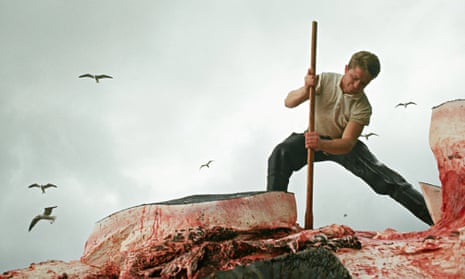So Pippa Middleton tasted “smoked whale carpaccio” while on holiday in Norway. Why should we care? Because with an issue as controversial as whaling, eating it – or not eating it – is making a statement. The fact is, Middleton is normalising the killing and eating of whales, a practice most of us feel is morally unacceptable.
Middleton didn’t have to eat whale meat. And she certainly didn’t have to broadcast the fact in a national newspaper. Her actions are particularly salient because her brother in law, the Duke of Cambridge, is so outspoken about conservation and wildlife crime.
We don’t think of Norway as a country that endangers its wildlife. But Norway continues to whale as a result of its “objection” to the International Whaling Commission’s moratorium – as do Iceland, and Japan, which practises so-called “scientific” whaling (the whales from the hunt are then sold and consumed).
Middleton ate minke during her meal. While the species isn’t listed as endangered, one of the problems is that this is not a well-studied species; we still know far too little about them, and whaling can deplete sub-populations, affecting their viability. In 2014, Norwegian whalers killed 736 minke whales, the only whale species currently being hunted in Norwegian waters. The demand for whale meat in the country is steadily declining, but unfortunately there is still a strong political lobby behind the industry. A big marketing campaign is trying to increase interest in whale products among the Norwegian people and tourists alike.
How can we influence countries that still hunt whales to fall into line with international norms? There are three main ways.
First, through the International Whaling Commission, where countries debate and determine the types and volume of whaling. However, the IWC is increasingly becoming a forum for conservation as much as a convention for regulating whaling.
Secondly, through example. Australia and the UK, to name but two nation members of the IWC, have long histories of whaling. However, governed by emerging science, research and an appreciation of wildlife and the natural world, those two and many other countries have decided that there is no place, or need, for whaling in modern culture.
Lastly, but perhaps most importantly, it is by no means a given that whaling has overwhelming support in the countries that practice it. In Iceland, for instance, only 1.7% of the population regularly eat whale. Meanwhile, 23.6% are against whaling, and 30.9% remain undecided. Demand and support for the industry is in decline in Norway, Iceland and Japan.
The tide is turning. One of the best things NGOs can do is work positively with pro-whale voices in those countries to help bring about change. We are confident that the situation will evolve and improve rapidly in the coming years. Besides, the protection of whales is not simply a game of numbers or conservation. Whales are intelligent, with complex social lives. Whaling is unnecessary and inherently cruel, with many whales suffering long, drawn-out deaths. There is no humane way to kill a whale at sea.
Not every high-profile celebrity can promote every worthwhile cause, but they can undoubtedly have a positive influence. It is interesting to compare Middleton’s actions with those of the actress Emma Watson, who made a point of not eating whale while filming in Iceland, then telling David Letterman on US TV why. Game of Thrones actor Jerome Flynn has spoken out against whaling. Fellow Thrones star Kit Harington has stated that he didn’t feel comfortable eating whale meat on set in Iceland.
Perhaps it was simply an ill-judged decision to accept the food her hosts provided, out of politeness. Perhaps she is against the practice of killing and eating whales? If so, she now has a great opportunity to say so.
